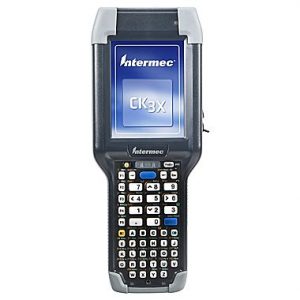As the bar-coding industry continues to reap the benefits of technological evolution, consumers are enjoying more and more functional products that are geared towards ease of data collection and usage. Like in every other tech-based industry, innovation has played a huge role in enhancing the functionality of bar-coding equipment. Many barcode equipment manufacturers and vendors have come up with many types of barcode readers and scanners to suit various client demands. As a result, barcode customers can now choose equipment according to type or to manufacturer/brand. Additionally, barcoding vendors have introduced barcode equipment rentals as part of their sale options. Incidentally, customers can now choose between buying or renting barcode equipment for private or industrial use. Whether you decide to out-rightly buy or to rent barcode readers and scanners, you will most likely choose from the following types.

Entry Level
Entry level barcodes are designed for simple data collection projects. They are relatively cheap and they work well with simple data collection applications. Simply put, these barcode readers are recommended for general scanning purposes. Created for the mainstream customers, entry level barcode readers and scanners are usually in the shape and size of a mobile phone. These easy to use gadgets are very effective for typical barcoding business solutions, such as inventory tracking, attendance tracking and asset tracking. Preferred for their accuracy, entry level barcode readers are powerful, accurate, and versatile in terms of connectivity and compatibility and they usually perform optimally in harsh conditions.
Industrial Level
Barcode manufacturers and vendors have gone an extra step to create a range of highly functional barcode readers and scanners for industrial usage. Industrial level barcoding equipment is designed to optimize targeted functionality in specific settings. Produced by reputed manufacturers, these barcode readers and scanners are small, compact and lightweight to ensure portability. They feature advanced keypads and enhanced connectivity and compatibility to ensure ease of use and suitability in a wide range of industrial settings. For instance, they usually support industry level connectivity standards, such as 802.11x, Cisco and Bluetooth connectivity, to enable wireless scanning, uploading and printing of data. Most of these combine barcode and radio frequency tagging technologies to ensure fast and efficient data collection capabilities.
Specialty/Rugged
Specialty barcoding equipment is designed for use in very harsh environments, especially in areas that contain highly combustible or flammable materials. Also categorized as rugged or ultra rugged, these barcode readers and scanners are suitably created to include protective design features, such as shockproof, waterproof, and chemical resistant outer covers, to withstand and survive in very demanding and hazardous settings. These types of barcode readers and scanners can either be entry level or industrial level by types but they should also have other specialty elements to withstand high heat, explosives, dust and chemicals during usage. Naturally, specialty or rugged barcoding equipment is versatile in terms of connectivity and compatibility; it’s easy to use, light in weight and applicable in various data collection tasks. Some specialty barcode readers feature additional functional features that enable advanced usage in addition to data collection, such as GPS tracking, PDF viewing and laser scanning. Mostly, industrial level specialty barcoding equipment supports Bluetooth, WiFi, and 3.75G WAN Radio among other connectivity options.
